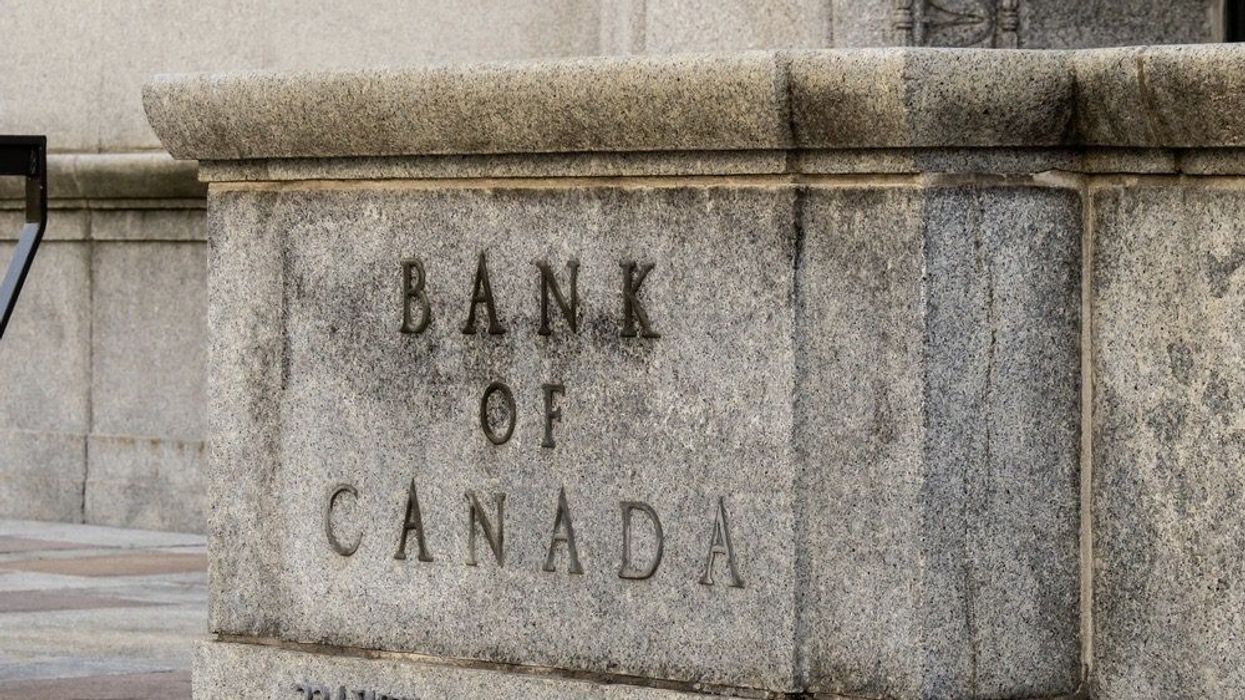The Federal Reserve raised its benchmark interest rate by 25 basis points Wednesday, marking both its first hike in nearly four years and the first of five to seven before the end of the year.
“The American economy is very strong and well positioned to handle tighter monetary policy,” Fed Chairman Jerome Powell told a press conference Wednesday. “We are attentive to the risks of further upward pressure on inflation and inflation expectations.”
He added that the Fed’s monetary tightening policies could accelerate if need be, adding that returning the economy to “price stability” is a priority.
The Fed’s benchmark interest rate could reach 1.9% by the end of the year and rise to as much as 2.8% in 2023. Powell says Russia’s invasion of Ukraine is contributing to rising inflation in the US.
What This Means for Canadian Monetary Policy
The Bank of Canada, which takes its cues from the Fed, already hiked its overnight interest rate by 25 basis points two weeks ago -- also a first since 2018. Inflation in Canada reached 5.7% in February, up from 5.1% in January, which was a 31-year high, and now there’s tremendous pressure on the central bank to raise interest rates quickly. It is an overwhelming likelihood that the Bank of Canada raises its overnight interest rate during its next meeting on April 13.
Robert Hogue, Senior Economist at RBC Economics, anticipates several interest rate increases this year from both the Federal Reserve and Bank of Canada, noting that they’re left with little choice.
“Our call is for four rate increases this year and three next year, but the situation is fluid. Inflation flared up significantly in the US to 7.9% in February and it is likely to go higher than that in March with commodity prices and supply chain disruptions,” Hogue told STOREYS.
“It will require [the Fed] to be more aggressive down the road. A material increase in interest rates is ahead of us. Financial market expectations are a little too aggressive but that could change. Our view is they are overly aggressive on rate hikes but clearly there’s significant increases ahead of us.”
Interest Rate Hikes Will Soften Housing Demand
RBC expects the Bank of Canada to raise its overnight interest rate three more times this year and twice in 2023, although Hogue reminds that things can change quickly. Canadian homebuyers will definitely feel the interest rate increases, though, if they haven’t already with mortgage rates steadily climbing. The Prime rate, which affects variable rate mortgages, has risen and that means buyers will have to start tightening their belts.
“I think it will now be a pretty broad increase in rates ahead of us that will raise the bar further for buyers, in terms of ownership costs, and at a time when prices, as we speak, are still rising,” Hogue said. “This is going to be even more challenging for buyers in the period ahead, so we fully expect affordability will be a top concern for buyers at large.”
Canada’s largest markets are its most expensive and Hogue says affordability woes will worsen in those locales because they’re the most sensitive to interest rate hikes.
“Times will get more challenging for borrowers as we go forward,” Hogue said.





















